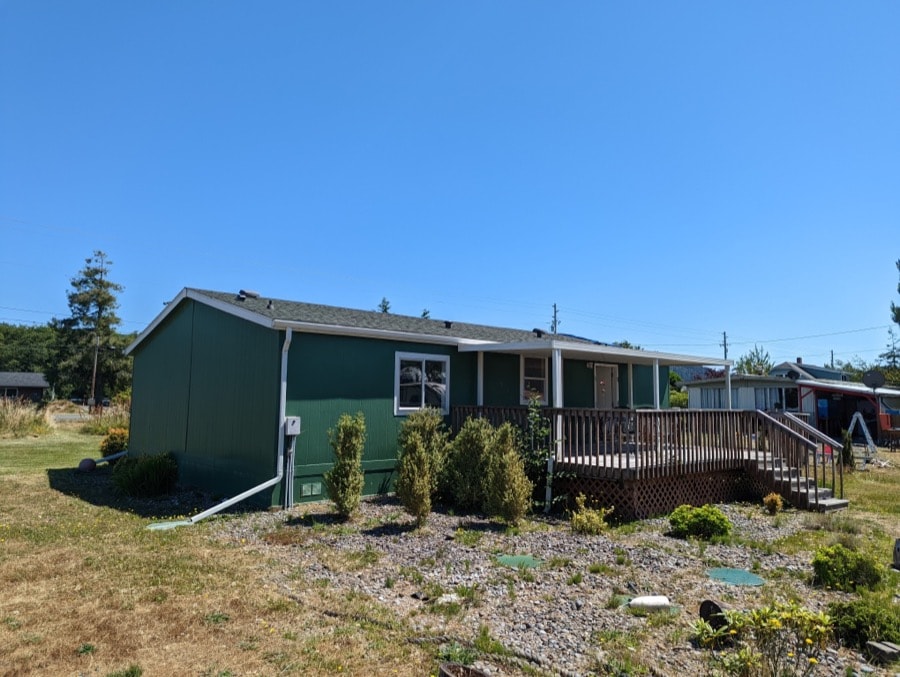A mobile home park or a trailer park is a land-lease community where residents live in manufactured homes. It can also be called a caravan park.
In this article, we’ll cover everything you need to know about mobile home parks — from its history to current statistics, trends, and challenges. We’ll also predict its future so mobile home owners can stay informed.
Let’s dive in.
A Brief History of Mobile Home Parks
When World War II came to a close, many veterans wanted to settle down with families and needed a home. So, there was a surge in housing demand. And most of these veterans couldn’t afford a regular home.
Then, the government came up with a solution: trailer homes.
In the 1910s, after the invention of automobiles, trailer homes were a rich people thing. Back then, hotels and motels weren’t very common, so travelers had a unique way of passing the night away from home.
They will pack a tent for a journey when they expect to pass the night on the road. When night fell, the traveler would stop, set up the tent beside their car, and spend the night.
This was not very comfortable for those who had the fortune to afford better at home. Hence, they commissioned trailers and had them affixed to their automobiles, a small room to spend the night in.
Then came the idea to provide spaces for these travelers to park their trailers. This formed small communities of wealthy trailer owners who spent the night around each other in these spaces. That was when the idea of trailer parks picked up steam.
In the decades so far, a lot has changed about trailer parks. For example:
- According to the Department of Housing and Urban Development (HUD), a factory-built home made before June 15, 1976, is a mobile home, and one built after June 15, 1976, is a manufactured home. That’s why those names seem to be used interchangeably.
- Because of their mobility and minimal cost (by design), trailers have become a more favorable housing option for the adventurous and those unable to afford a regular home.
The low price of caravans makes them the cheapest kind of housing on the market. So, it wasn’t too long that the stereotype moved from a “rich people thing” to being associated with the less privileged and criminally minded.
Hence, many neighborhoods, up to 70% of them in the United States, ban trailer homes — even with NIMBY (Not in My Neighborhood!) campaigns.
Mobile home residents face heavy discriminations. Mobile home park residents are often portrayed as criminals and vagrants. These along with vulnerability to natural disasters are just bad stereotypes.
It probably doesn’t help that trailer parks are often in rural areas or in the Deep South. Most Americans have a negative view of those regions. This stereotype is unfair to the upstanding citizens who live in trailer parks.
In fact, mobile homes are actually built to code and are functional with decent residents who in many cases bought the land of the mobile home parks and fit perfectly into society.
Mobile Home Parks Costs and Statistics
Despite being widely unpopular, the fact remains that mobile or trailer homes are an affordable substitute for the more permanent options. As a result, these homes are still in service today with over 22 million people in the States living in them.
How many mobile homes and parks are in the United States?
According to the Manufactured Housing Institute:
- There are more than 43,000 land-lease communities (or caravan parks, if you prefer)
- There’s an estimated 4.3 million homesites in communities
- There are 143 homebuilding facilities in the US that produce manufactured homes
- In 2021 alone, 105,772 manufactured homes were built
Also, Mobile Home University revealed that:
- Texas has the highest number of caravan parks — 5,176 of them
- California comes in second with approximately 4,000 parks, and
- The third is Florida, which contains 3,785 parks
What can you expect to pay for a spot in a mobile home park?
This depends on a few factors. One of these, probably the most important, is the location.
Mobile home park prices vary by location. Quality always has and probably always will be one of the most expensive commodities out there, right before convenience. Hence, you can expect to pay anywhere from $200 to $900 monthly for a space at a mobile home park.
The Future of Mobile Home Parks
Unfortunately, the number of mobile home parks is dwindling every year. This is because of several factors:
1. Stricter zoning restrictions in states
Building codes are set by each city or county. In some cases, these rules prohibit caravan parks from being built within a certain distance of an area’s commercial zones (for example, if you want to build a park in the middle of a city).
This is one of the main reasons caravan parks are disappearing in the US. For convenience, people need a space close enough so that it doesn’t take too long for them to get to and from a grocery run but is still within their budget.
2. States lose money because of mobile homes
The state spends more on each child in the public school system annually than it gets as taxes from mobile homeowners. Some states tax them like vehicles. This amounts to a few hundred dollars from taxes for a single home instead of the thousands of dollars the state needs to support a child through school for a year.
Hence, a few states find mobile home parks unappealing and do what they can to reduce the amount of them cropping up.
3. The state is shutting down neglected mobile home communities
Mobile homes are inexpensive to live in, but they require maintenance. The land owner charges tenants a small amount that isn’t enough to keep up with inflation as time goes on. This will lead to a steady deterioration of the community and eventually bring the health department down in the park.
4. More mobile home communities are being repurposed
Every year, more of these communities around the country are being torn down, and the land used for other purposes. This is a big problem for the future of mobile home parks as the number of parks being developed every year is far less than those packing up.
5. Not In My Backyard (NIMBY) neighbors are getting louder
This is what the stigma surrounding mobile home residents comes to. This is a growing problem because many people are trying to make it more difficult for trailer parks to be built in their neighborhoods. They do that by voting against any zoning changes. They say they are afraid of criminals and drug users moving into their neighborhoods. A result of bad stereotypes.
But Mobile Homes Parks Help Solve Housing Challenges
Despite these challenges that face mobile housing, the fact remains that it still costs way less than regular stick built homes. And for this reason, they’re helpful in solving the housing problem at scale.
And there’s good news: 20 states have adopted laws to help ease these challenges. Even the Biden’s administration’s housing plan in 2022 provided more support to manufactured homes parks.
Residents can cooperatively own the land their mobile home communities sit on with low-cost loans. They also use these loans to improve amenities such as water supply, sewage, and electricity. These loans are also invested in renewable energy, upgrading drainage systems, and building storm shelters and community centers.
Although more legislation to improve on this is expected, the recent improvements are an indication that the future isn’t bleak for mobile home parks. Government pays attention to them and the residents are committed to a better quality of living.
Pros and Cons of Living in a Mobile Home Park
Like everything else, living in mobile home parks has its advantages and downsides. It is left to you to decide if it’s worth it. Check out the pros and cons to inform your decision:
Pros
- It’s an inexpensive lifestyle. Mobile homes are very affordable and the cost of renting a space in a community is even lower.
- They are quite secure and social. With the number of people a single community can contain, it’s a simple matter to find someone with a common interest as well as the safety in numbers.
- Contrary to popular thinking, mobile home parks can afford you a lot of extra space. You can attach a garage and have a lot of land area, as opposed to a standard family home or condo.
- Mobile home parks are very controlled environments. So, you can expect the homes there to be built to a high standard and maintained that way. It’s actually safe.
- There’s greater flexibility in living in these parks. You can reposition the home (although with some difficulty) but stick built homes can’t be moved — ever.
Cons
- They don’t provide large yards. You might think it’s much better that way—less cleaning for you—but it’s something to keep in mind if you intend to keep pets or garden.
- There is a certain stigma park residents have to contend with. This includes derogatory terms such as ‘trailer trash’ and more.
- Transportation of the mobile home can be tricky, especially if it’s located close to the center of the park.
- You stand a chance to be evicted if a big company takes over. It’s getting quite common for these companies to purchase mobile home parks and raise rents so high that the original residents cannot afford to live there anymore.
If you feel that living in a mobile home park is more trouble than it’s worth, and have decided to get rid of your mobile home, then consider aiding the fight against homelessness in our country by donating it to someone out there who needs it more. And if you need it transported off your land or out of the park? Then look no further than Banyan Mobile Home Removal for help. We will get it off your hands for free if it’s a donation.You can reach us via phone or email and we’ll help you move it.


